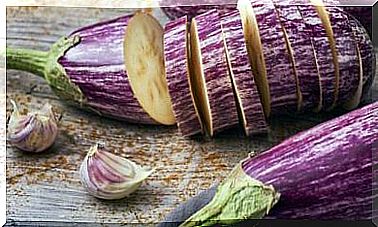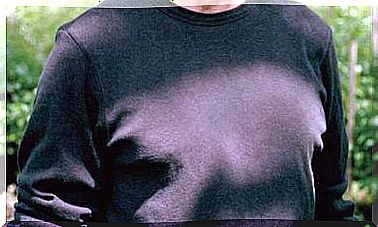“Lack Of Energy Has To Do With The Gut”
Maintaining bacterial balance in the colon is essential for health and well-being. Nervous, hormonal and mental factors depend on him, says Xevi Verdaguer.

Psychoneuroimmunology (PNIE) is an integrative medical discipline that studies the relationship between the nervous, hormonal and immune systems and people’s behavior. The PNIE considers the care of the intestinal microbiota as an axis of well-being and Xevi Verdaguer, author of the book Transform your health , has specialized in it (Grijalbo, 2017).
We had the opportunity to interview him during the celebration of the I Congress of Psychoneuroimmunology, which took place at the Planas Clinic in Barcelona last June (2019) and of which Xevi was co-organizer.
Depression is managed from the gut
—What are the major scientific evidences exposed in this I Congress of PNIE?
—The health paradigm is changing. New technologies allow us to analyze what we could not before: dysbiosis or the imbalance of intestinal bacteria, due to exposure to toxins, whether they are toxic due to moisture fungi, for example, that affect behavior, or due to diseases allergic.
The infections that we have when our intestine is out of balance causes these bacteria to end up being reabsorbed and circulating in the blood and, upon reaching the brain, this generates the activation of the immune system, the microglia …
“What are these microglia doing?”
—The more they are activated, the more inflammations are generated, and therefore more behavior problems, depression, anxiety and chronic pain we have. Studies show that people with chronic pain or depression and anxiety, in the end, have the same neuroinflammatory substrate that is also related to problems of chronic fatigue, Alzheimer’s, dementias or autistic disorders …
– Can we know if our microbiota is balanced or not?
—We can find out through analytics with new molecular biology techniques, with computer systems, and we can analyze the DNA of bacteria, the DNA of fungi and even the virome, the DNA of all viruses.
Before we could do microscope analysis and check for candida, but not much else was known. Today we know that all microorganisms interact in an ecosystem that has to be in a particular balance in each person, from the womb to the present day.
“What if they get off balance?”
—When some microorganisms become unbalanced with respect to others, they can lead to cases as common as eczema or vaginal fungi appearing after taking antibiotics to treat an infection. It is a very common problem in women, for example. Sometimes it happens the other way around, they are dealing with fungus in the mouth or intestine and they have streptococcal vaginosis.
—I understand…
—When you change something, there is an adaptation, and then, when there is an overgrowth of fungi or pathogenic bacteria, inflammation is always generated, and this inflammation can manifest as a digestive pathology: irritable bowel, esophagitis, gastritis, constipation , diarrhea…
The person who suffers from it ends up having trouble concentrating, is more depressed, with a lack of energy. You may take pills for sleep or anxiety. The point is, lack of energy or mood has a lot to do with the gut.
– Fixing the intestine is essential, so … –
Yes, and to improve this ecosystem, so that it is in balance, food is very important. Candies love a diet rich in sugars and starches, and if you eat more you have more candids. If you eat a lot of bread and a lot of pasta, and you eat sugary yogurt every day, but you also eat kombucha, fermented foods and fiber from fruit and salad, you keep all the factors balanced and nothing happens. This is why food is so important.
—In your book, the importance of butyrate has caught my attention…
—When we eat fiber and resistant starch we have gases, and these gases ferment in the colon, but apart from gases, when we eat fiber, short-chain fatty acids are produced and the more important is butyrate. It regulates inflammation in the intestine and colon, and at the brain level it acts as an anti-inflammatory that helps neuroregeneration and neurodevelopment. So the interesting thing is to see if we have enough bacteria that make butyrate.
“What bacteria make it?”
—We already know what they are: people with depression have neither Prausnitzii nor Roseburia. And these two bacteria have been shown to improve with coffee and fruit. So if you drink coffee and fruit pectin (especially hot: baked apple, compote …) you have more energy, you sleep better at night, you make more serotonin …
“Are there other foods that help produce butyrate?”
—Yes, the ones that provide resistant starch: green banana, whole oats, corn on the cob and plantain. And the preparations resistant to digestion: legumes, rice or freshly made potatoes produce glucose in the intestine and give us quick energy, ideal for burning while exercising; But if we let them cool for a day or two in the fridge, the starch becomes resistant to digestion and helps us make butyrate.
“What benefits do they have?”
—Eating little of this cold rice will make us feel more satiated, we will feel much better and we will have greater concentration. The same goes for legumes, potatoes and pasta.
—How does our microbiota affect hormonal health?
– The lack or excess of estrogens is a problem, for example, and the intestine has the key to control that they remain balanced. During menopause, less estrogens are made, and the eyes and skin become dry, and vaginal dryness begins. It also begins to generate more fat in the abdominal area and to have higher levels of cholesterol and sugar, when before these problems had not been had …
—And certain foods help combat this lack in menopause.
—Yes, we must increase:
- Foods with estrogenic activity, such as legumes, flax, sesame, grapes …
- Isoflavones from soybeans.
- The red clover or black cohosh are plants that go well.
- The hops or oats.
When cholesterol is lowered without doing anything, it is the best sign that estrogen activity is improving.
“Some women don’t work with phytoestrogens…
” It could be due to the diversity of the microbiota. Oriental women have a more varied microbiota. 70-80% of them consume soy and have no risk of breast cancer or hormonal problems, and here it only occurs in 30%. So there may be women who do not have the bacteria that know how to metabolize isoflavones.
In addition, if the woman has intestinal dysbiosis, the bacteria in the intestine make enzymes that cause estrogens to be reabsorbed, to go into the blood and again to the liver, instead of being eliminated outside the body.
“And then what happens?”
—In the liver, an excess of estrogens is produced that causes women to have severe period pain, abundant bleeding with clots, more vaginal discharge, breast cysts, endometriosis, irritable bowel, migraines, anxiety, fibromyalgia, chronic pain, autoimmune diseases…
“What solution is there?”
“In order not to reabsorb estrogens, we need a stool test and check for bacteria and fungi that are out of balance.” And also what is always common to everyone: we need to maintain bacterial diversity in the intestine with fermented foods and foods that favor the production of butyrate, such as soluble fiber and resistant starch.
Improve your mood by controlling your microbiota
To avoid anxiety and depression problems, it is advisable to keep the bacterial diversity in the intestine balanced.
For this we need to increase the bacteria that help to ferment in the colon (where 95% of serotonin is manufactured, the neurotransmitter linked to well-being) the food we eat, and in this way achieve a more varied and balanced microbiota.
We must eat fermented foods such as kombucha tea or vegan yogurts and cheeses. Then, foods like olives, dark chocolate (85 or 90% cocoa), non-alcoholic beer, fermented soybeans, such as miso, tempeh and soy sauce, and fermented vegetables.









